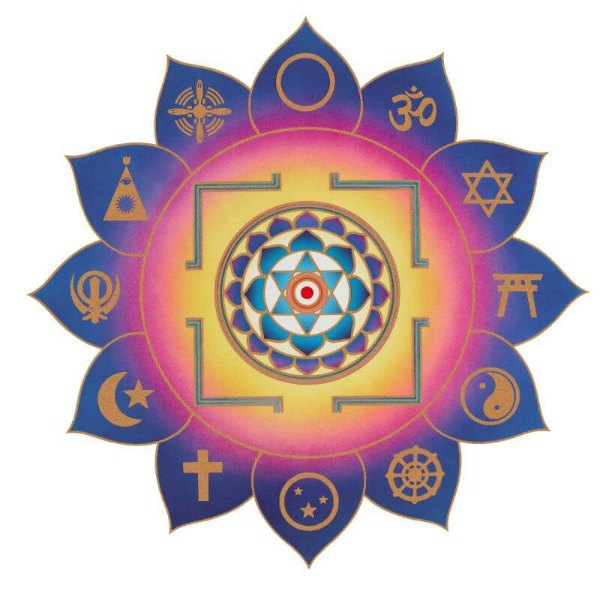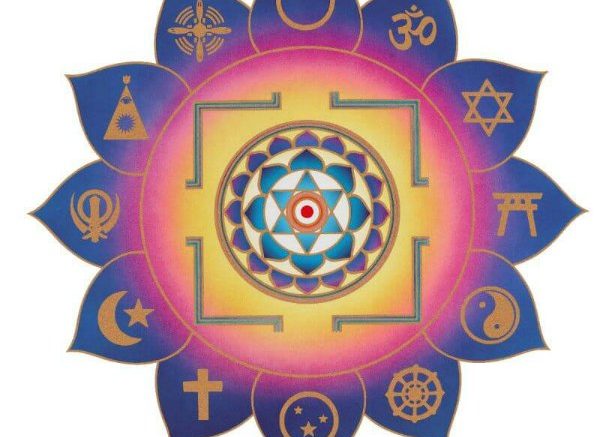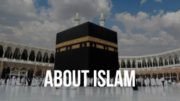 Article 4 of a Series (see full lnterfaith list here)
Article 4 of a Series (see full lnterfaith list here)
The Road Ahead
The next few articles look at some common arguments advanced by Islam against Christianity specifically – and by extension other faiths in general. The purpose of these articles is to lay out the facts underlying Islam’s claims on each topic. After these topics have been discussed, we’ll move on to how we should respond as Christians, what should a Biblical response look like?
The Qur’an and the Bible
The Qur’an and the Bible are the foundational sources for Islam and Christianity respectively. Pete Seda asserts a common claim within Islam that “Muslims believe in all the previous revealed books.”[1] Specifically this relates to the revelations given to both the Jewish people and Christians. However, “Muslims do not consider the scriptures revealed before the Qur’an, which are presently in circulation in various editions and versions, to be an accurate representation of their original revealed form. According to the Qur’an, people have distorted these scriptures for their own worldly gain.”[2] Further, “the final means by which they [scriptures] judge different matters and seek ultimate guidance is sought through the Qur’an.”[3]
This article looks at the preceding claims. Have the Torah and Bible contents been corrupted? What specifically does the Qur’an say about earlier revelations? It sticks to historical facts. Nothing else is needed. This article does not address the teachings within either the Qur’an or Bible, but instead the development of these two sources themselves and the above claims related to them.
The Qur’an
Its Origination
The Qur’an is said to contain Allah’s revelations transmitted through the angel Gabriel to Muhammad. It is written in first person with Allah as the sayer. The word Qur’an literally means the reading or the recital. It was originally memorized and transmitted orally, and likely was never intended to be in written form. No written Qur’an existed during Muhammad’s life.
There are several stories about the initial collection and writing down of its verses. One is that after the Battle of Yamamah, occurring within a year of Muhammad’s death, many of his original followers were dead. The Qur’an was in danger of being lost and the scribe Zayd was commissioned to collect all its verses.
Its Language
Pete Seda states, “The Qur’an is regarded, not just by Muslims but also by historians of religion, as the most authentic religious text among the world’s religions. None of the other revealed books have reached us in their original form or language.”[4] “The Qur’an is for all people and is available to us in its original, living language, Arabic.”[5] This and the next section take a moment to examine these claims.
The language of the original Qur’an codices is an earlier form of Arabic, and not modern Arabic. This earlier form of Arabic is not used today. This earlier form was also a Semitic language, but the pointing and diacritical marks used to denote short vowels and distinguish between different consonants that is present in modern Arabic did not exist in the Arabic of Muhammad’s day. Different variant readings could be created by placing different marks in different places within the original unmarked text.
In addition, different codices were collected and began to be used. The meaning of the Qur’an was again in danger of being lost. The third caliph, Uthman, ordered the Medinan codex be accepted, and that all others be burnt. It is said that Uthman selected this codex as it was written in Muhammad’s native dialect. However, the variant readings increased in number during the Umayyad Dynasty and into the Abbasid, over a century after Muhammad’s death into the eighth century.
In the words of Charles Adams from The Encyclopedia of Religion:
“It must be emphasized that far from there being a single text passed down inviolate from the time of Uthman’s commission, literally thousands of variant readings of particular verses were known. … The variants affected even the Uthmanic codex, making it difficult to know what its true original form may have been.”[6]
“Although Muslims of the present time generally have forgotten the very existence of these variant versions of the Qur’an … Arthur Jefferies has listed fifteen primary codices (i.e., from the Companions) and a large number of secondary ones.”[7]
For this original form of Arabic, there were only three ways to interpret the unpointed text. First, you could be present and hear what was actually said. Second, you had to receive the transmission of what was said from a trusted source, this is the concept of isnad. Third, you had to interpret the meaning from the text itself.
There was an awakening of religious interest with the rise of the Abbasid Dynasty. However, that dynasty did not begin until about 750 AD, over one hundred years after Muhammad’s death. At this point in time, there was no longer anyone left alive who had heard Muhammad speak. The number of variant readings and differences in codices made it impossible to determine which variants were true and which were not. This left only the third option of interpreting the meaning from the text itself, which is what the Islamic scholars began to do and where we turn next.
Its Development
The Mu’tazalites within Islam are credited with bringing Hellenistic thought into Islam during the latter Umayyad period (mid-eighth century); two of their main tenets were divine justice and the unity of God. Their rationalistic thought brought them into conflict with their day’s established belief. For much of the first half of the 9th century, the caliphs supported their views. This was the time of the Mihnah, the Islamic Inquisition. Their intolerance and doctrine resulted in the rejection of their beliefs, but they still had a lasting influence through the rationalism they brought to Islam.[8] They supplied the reasoning used to reach consensus among the Islamic scholars.
That consensus was used to create rules limiting the number of variant readings that could be created from the codex text. A first effort was undertaken in the early Abbasid Dynasty, which began in about 750 AD. However, the number of variant readings continued to increase. It was not until the 10th century, about 300 years after Muhammad’s death, under Islamic scholars led by Ibn Mujahid that a single system of consonants was canonized and a limitation placed on vowel insertion.
Even then, seven different systems were accepted by Ibn Mujahid, each traced through two different transmitters. From Charles Adams again:
“What appears to have happened in this instance is that the community, being unable to agree on a single reading, accepted diversity as the norm and proclaimed all seven (or ten or fourteen) to be correct.”[9]
The Bible
Its Origination
The Bible is the revealed word of God through the prophets starting with Moses, and ending with the Gospels and letters of the New Testament. The first five books of the Old Testament were written by Moses, and are the books of the Jewish Torah. The Torah, along with the Nevi’im (books of the prophets) and the literary books of the Kethuvim (Psalms, Proverbs, Song of Songs, etc.) make up the Jewish Tanakh – the Christian Old Testament. The Tanakh documents the history of the Jewish people and God’s revelations to them.
There is a period of about 400 years between the last books of the Old Testament and the New Testament events. The New Testament chronicles events fulfilling the Messianic Old Testament prophecies and Christ’s teachings.
Its Language
Bible manuscripts are written in several languages. Old Testament manuscripts are written in Hebrew and some Aramaic. The Old Testament was translated into Greek (the Septuagint) in Egypt during the third century BC. Until the mid-twentieth century, the earliest Old Testament manuscripts dated to about the ninth century. However, finding the Dead Sea Scrolls in the mid-twentieth century gave us text from almost all the Old Testament books dating to the first and second century BC – over two thousand years ago, in their original Hebrew. The Dead Sea Scroll contents confirmed the previous Old Testament manuscripts underlying both Jewish and Christian scriptures.
No documents from the ancient world are as old or were written as close to the events they chronicled as the Dead Sea Scrolls. Many of the names and places mentioned within the Old Testament have also been found by archeologists. There is no doubt as to their contents or accuracy.
The New Testament manuscripts are primarily written in Greek, and there are over 5,300 of them. Most writings from the ancient world have no more than a couple dozen copies (including the Qur’an) and date no earlier than the ninth century. The earliest New Testament manuscript is a scrap from the book of John that was written in about 114 AD, within a generation of the events they describe. New manuscripts are being discovered almost every year.
These documents are amazingly accurate. While there are a large number of variants attributed to these manuscripts, most of these are due to the way in which an error is defined. Any stray mark on a manuscirpt is defined as an error. If a particular mark is missing from 2,000 of the 5,300 manuscripts, it is not counted as a single error but instead as 2,000 errors. In essence, the New Testament is penalized for having so many manuscripts in existence.
In the nineteenth century, Philip Schaff addressed this issue. He calculated that “only about 400 of the 100,000 or 150,000 [New Testament] variations materially affect the sense. Of these, again not more than about fifty are really important for some reason or other; and even of these fifty not one affects an article of faith or a precept of duty which is not abundantly sustained by other and undoubted passages, or by the whole tenor of Scripture teaching.”[10] There is no other book from the ancient world that is as well documented or as accurate as the Bible. There is no basis for Islam’s claim of text corruption for eaither the Old or New Testament.
Its Development
We have manuscripts dating from before Christ’s life for much of the Old Testament. These confirm the Old Testament citations contained in the New Testament, and tell us those passages come from the Greek Septuagint – and not the Hebrew manuscripts.
As to the New Testament writers, Matthew, John and Peter were Christ’s disciples. The Gospel of Mark was written by one of Peter’s disciples. Luke and Paul were contemporaries of Christ, and Paul was a witness to the resurrection. Finally, we have manuscripts for much of the New Testament dating to within 150 years of the events they describe, and the entire New Testament within 300 years – dating to the fourth century, over 200 years before Muhammad’s birth.
Finally, if we have doubts as to a translation in one of the modern versions, we have inter-linear Bibles containing copies of the original Hebrew and Greek manuscript text – along with both a literal translation of each word and definitions of the Hebrew and Greek words used in the text.
We do have accurate manuscripts with the original meaning in our possession. To say otherwise is to deny reality. So what does the Qur’an have to say about the Torah and Bible.
The Qur’an on Other Revelations
Several brief points on this topic before we close. First, the truth comes from God. From surah 2.136:
Say: We believe in Allah and that which is revealed unto Us and that which was revealed unto Abraham, and Ishmael and Isaac, and Jacob, and that tribes, and that which Moses and Jesus received, and that which the Prophets received from their Lord. We make no distinction between any of them, and unto Him we have surrendered.[11]
Second, the Torah and Bible were revealed by God and are truth. From surah 5:
Lo! We did reveal the Torah, wherein is guidance and a light, by which the prophets who surrendered (unto Allah) judged the Jews, and the rabbis and the priests (judged) by such of Allah’s Scripture as they were bidden to observe, and thereunto were they witnesses. So fear not mankind, but fear Me. And barter not My revelations for a little gain. Whoso judgeth not by that which Allah hath revealed: such are disbelievers. (5.044)
And We caused Jesus, son of Mary, to follow in their footsteps, confirming that which was (revealed) before him in the Torah, and We bestowed on him the Gospel wherein is guidance and a light, confirming that which was (revealed) before it in the Torah – a guidance and an admonition unto those who ward off (evil). (5.046)
Say O People of the Scripture! Ye have naught (of guidance) till ye observe the Torah and the Gospel and that which was revealed unto you from your Lord. That which is revealed unto thee (Muhammad) from thy Lord is certain to increase the contumacy and disbelief of many of them. But grieve not for the disbelieving folk. (5.068)
Third, God’s word is incorruptible as he protects it.
Lo! We, even We, reveal the Reminder, and lo! We verily are its Guardian. (15.009)
Finally, if Muhammad doubts the revelations he has received, he is to ask those who received God’s revelations before him.
And if thou (Muhammad) art in doubt concerning that which We reveal unto thee, then question those who read the Scripture (that was) before thee. Verily the Truth from thy Lord hath come unto thee. So be not thou of the waverers. (10.094)
For Muhammad’s revelation just above to be true, the Torah and Bible existing in his day must have been true. But those are the same texts that we have today. You cannot have it both ways. A further question that must be asked is if the first two sets of revelations had become corrupted (the Torah and Gospel), how is it that producing a third set of revelations would protect that set alone from corruption? Either God is capable of protecting His revelations or not. Again you cannot have it both ways.
We must discern the truth, and to do that one needs to educate themselves on the meaning of the Qur’an (with a sirat to provide context) and the Bible. Then after prayer let your heart discern which contains the revelations of a God who is Just and Good. We will not get that education from our corrupted academic institutions, media, or political leaders. Most of them simply do not know, or choose to know, the truth.
Dan Wolf is a researcher, analyst, and author. He has written three books examining the relationship between faith, freedom, virtue, and charity. Together these form the cornerstone of our purpose, and our society’s foundational principles derived from those relationships. Links to his work can be found at the Living Rightly website.
[1] Seda, Pete, Islam Is …, p. 4, 2002.
[2] Ibid.
[3] Ibid.
[4] Seda, Pete, Islam Is …, p. 7, 2002.
[5] Ibid, p. 8.
[6] Eliade, Mircea, Ed., The Encyclopedia of Religion, Vol. 12, p. 164, MacMillan Publishing Co., 1987.
[7] Ibid.
[8] Wolf, Dan, A War for God, p. 39, living rightly publications, 2017.
[9] Eliade, Mircea, Ed., The Encyclopedia of Religion, Vol. 12, p. 165, MacMillan Publishing Co., 1987.
[10] Schaff, Philip, Companion to the Greek Testament and English Version, p. 177, Harper, 1883.
[11] All quotes from the Qur’an come from Pickthall, M. M., The Meaning of the Glorious Qur’an, amana
publications, 1999.



